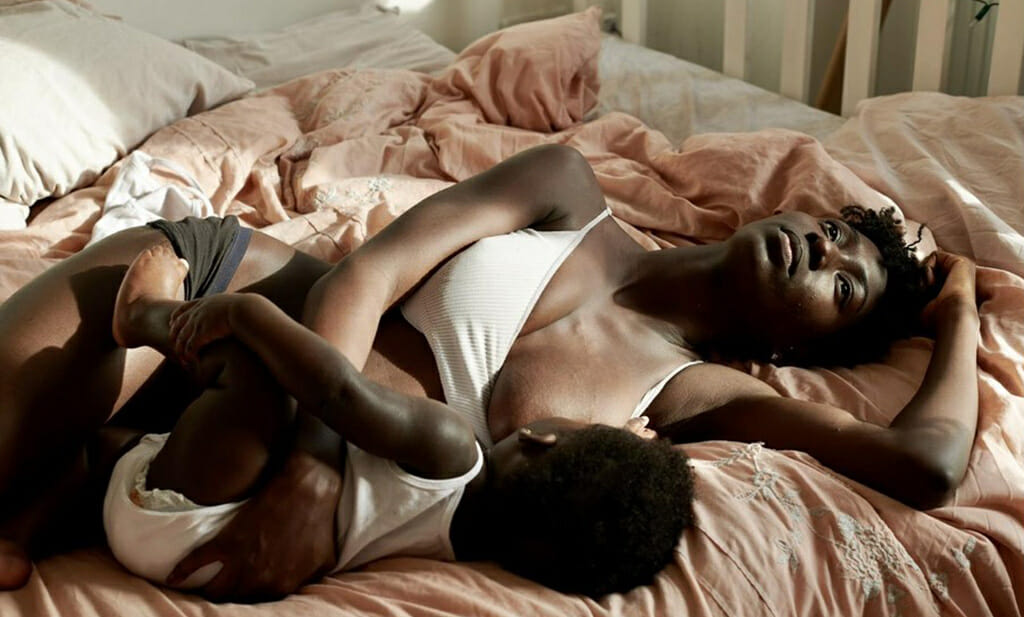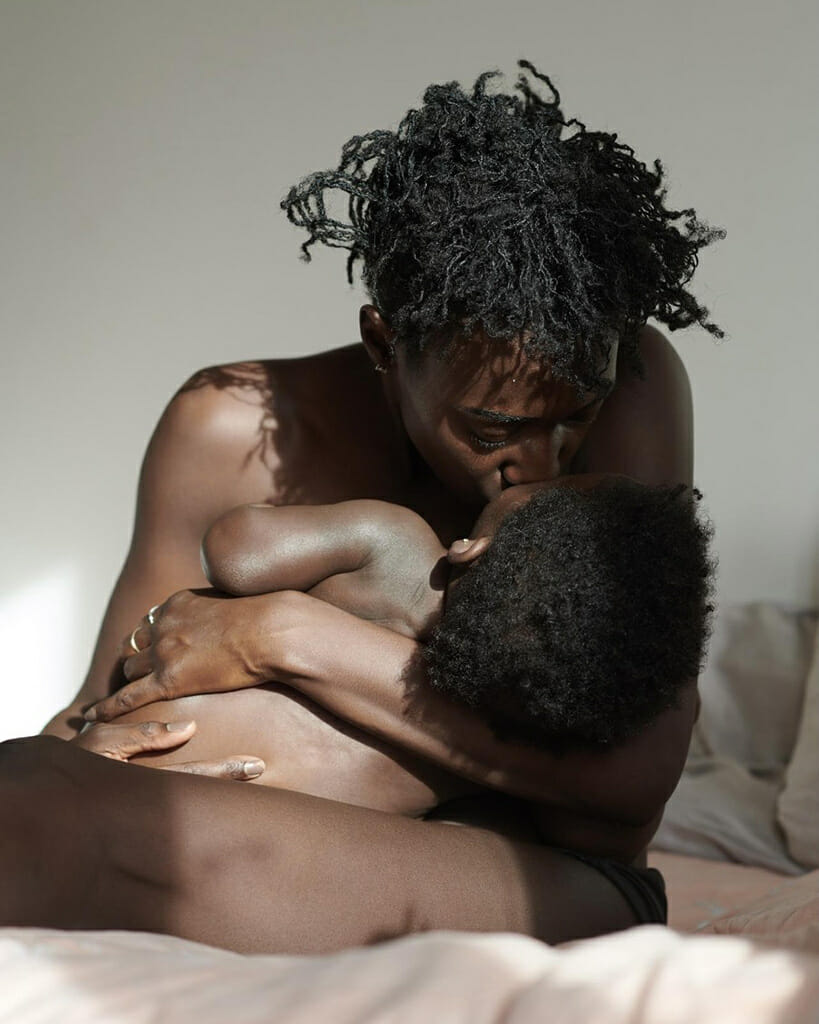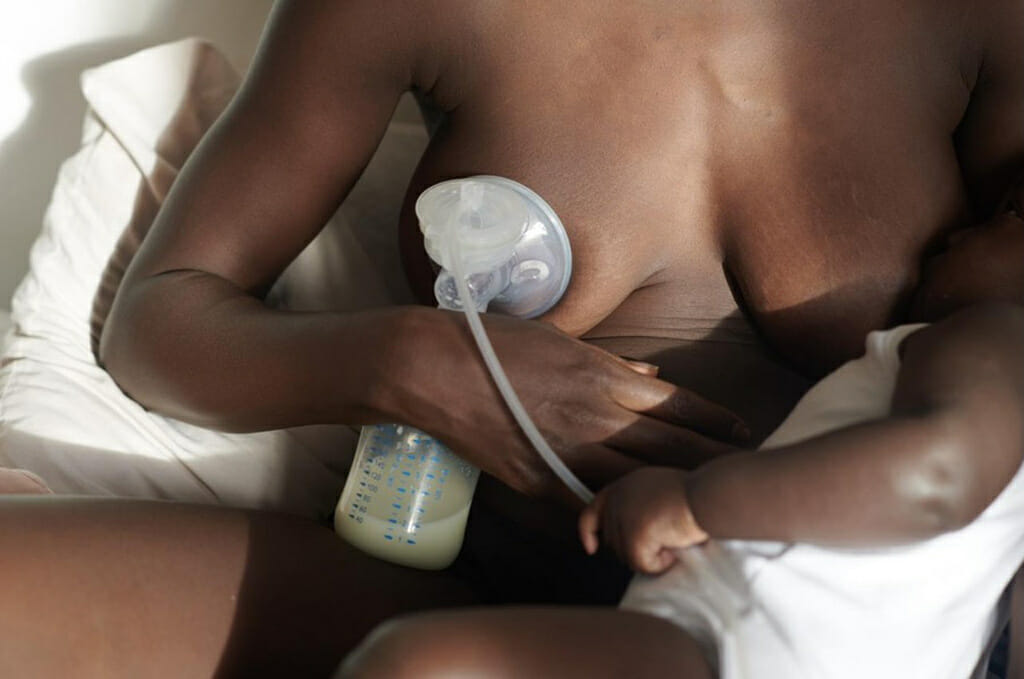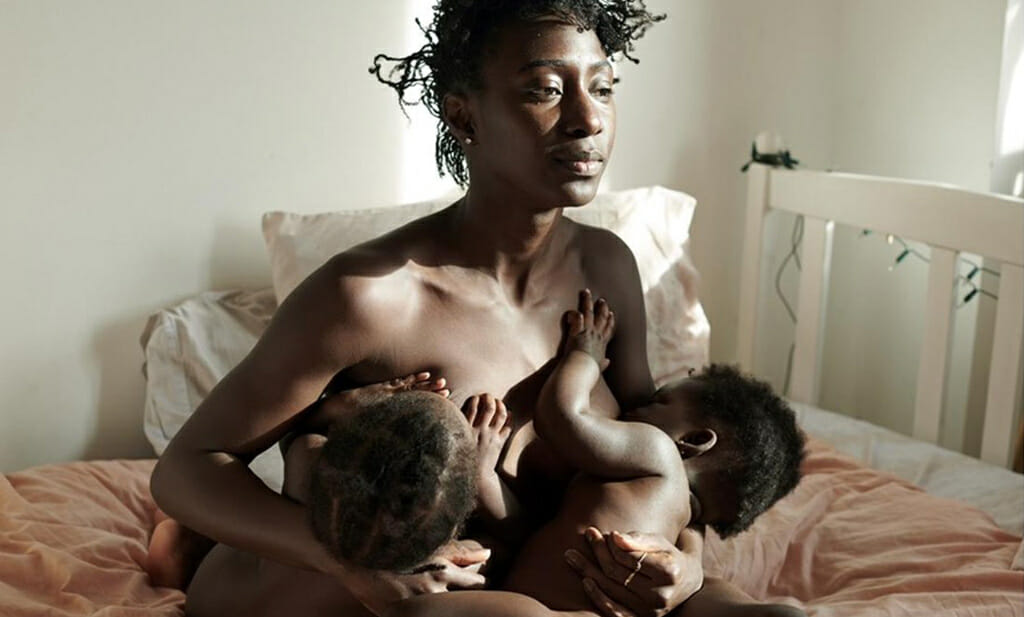
It’s Black Breastfeeding week and we caught up with Chaneen Saliee, mother of two, multi-award-winning influencer and founder of Chic and Discreet, ahead of this year’s celebration to talk about what Black Breastfeeding Week is and why it’s so important. Read on below for her thoughts…
Black Breastfeeding Week takes place from 25th – 31st of August. It is a week in which black breastfeeding mothers are celebrated, represented, and empowered. Black breastfeeding mothers are portrayed as soft and strong, as capable, and as vital for the survival of her infant. Black breastfeeding week makes space for and shows off black breastfeeding mothers who are reframing the narrative and telling their own stories about what it means to be a black mother.
Black Breastfeeding Week has been acknowledged and celebrated for 10 years and this year’s theme is: A New Foundation.

If we time travel back a few years, the only, ONLY stories and representation of black mothers were ones of poverty, deprivation, struggle and enslavement and often death of mother or baby, in equal probability but both (the black mother and baby) vastly more likely to die than their white counterparts. Compared to white women, black women are four times (historically five times) more likely to die during pregnancy. Similarly, black babies have an infant mortality rate of three times higher than white babies. (Source: MBRRACE UK)
There has been a history of deep-rooted trauma and pain surrounding the black maternal experience which is why Black Breastfeeding Week is so necessary. We are building up from a new foundation.
It is a time to look toward the future as a bright one for black women. Scientific research is now looking into ways to understand and support black women during pregnancy, breastfeeding and beyond.

It is a time to share positive breastfeeding stories and experiences which encourage black mother’s to initiate breastfeeding, to find the right support and to keep feeding for as long as they, themselves, want to feed.
It is a time to educate and learn about the benefits of breastmilk and breastfeeding for both the mother and baby.
The History of Black Breastfeeding
Yewande Ade, a Black History writer explains in her article ‘The Complicated History Of Wet Nursing And Black Breastfeeding’ that “black breastfeeding has a complicated history dating back to the era of the slave trade and the use of wet nurses. During that time, black female slaves were forced to breastfeed white babies; a practice which is known as “wet nursing”.
Black mother’s had their own babies taken away from them, so that their breast milk would be used to feed white babies, while their own black babies perished. ‘Young and healthy slave women were also forced to breastfeed white babies after doctors discovered that the continuous sucking of a sexually active female breast could result in lactation.’ writes Elizabeth Ofosuah Johnson in, ‘The disturbing history of enslaved mothers forced to breastfeed white babies in the 1600s’.
This brief history lesson reflects on some of the struggles, exploitation and dehumanisation of black mothers in regards to breastfeeding and racism. That is the past. That shapes where we are now, but from here, where do we go?
Black Breastfeeding Week seeks to raise awareness of the disparities that have been faced by black breastfeeding women so that more of us can push for change to improve the healthcare and education systems, to improve the casual unsolicited advice often imposed upon new mothers and to be aware of the resources that are available to help.
The Black Breastfeeding Week Organisation in the UK is a great place to start.
As a black mother who never knew what breasts were for until I was already 36 weeks pregnant, I serve as a prime example as to one reason why black mothers are less likely to feed their babies. As a child I never saw breastfeeding, perhaps except for one hazy recollection I have of two women mocking my aunty saying, ‘he’s still on the boobs. He’s going to be attached to you like that until he’s 16’ and then laughing it off as a joke. Between never seeing it in a positive light, never being taught it in school, not even in biology after learning about pregnancy and hearing of how offensive breastfeeding was portrayed to be on viral Facebook videos, it really never did cross my mind as an option for me or my child.
One afternoon, quite close to my due date, I found myself in a hot midwife’s office and she’d asked how I’d like to feed my baby. I looked over to the window, as if asking it why this was even a question. “I don’t know the formula,” I said. “Isn’t that what all babies eat?”
She shifted in her seat and reached for some leaflets underneath a folder on her cluttered desk. “Which antenatal classes have you been to? Have you been to this one? It’s about breastfeeding. Book in as soon as possible, because I think there are other options you might consider for feeding your baby.”

The next day, at the end of that antenatal class I was a breastfeeding superhero who had been deceived of my powers all my life. I had a few weeks left and I would learn everything I could to make sure that breastfeeding got off to a good start. I was determined to breastfeed, but it was hard, I had bloody nipples and was in so much pain that I cried in the very early days, but the information that I got from that one class and the trajectory of my life. I have gone on to feed both my daughters for three years each and I tandem fed them both for a period of 18 months all while supporting thousands of other mothers in their breastfeeding journeys too.
Information, education and celebration – this is Black Breastfeeding Week.
Photos by Photographer – Sophie Harris Taylor
You can follow Chaneen on Instagram at @chaneensaliee, and we absolutely recommend it! As well as her incredibly moving and powerful content surrounding her breastfeeding journey she helps other parents to see that none of us are alone in this journey and to find the confidence to be the parent they want to be! In her own words you get a great big dose of “award winning normalness, relatability and hilarious honesty”!
And of course, we highly recommend heading to https://blackbreastfeedingweek.org for more on Black Breastfeeding Week.



